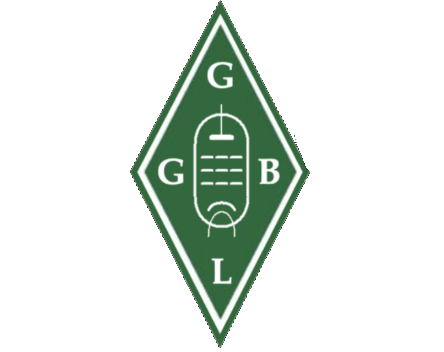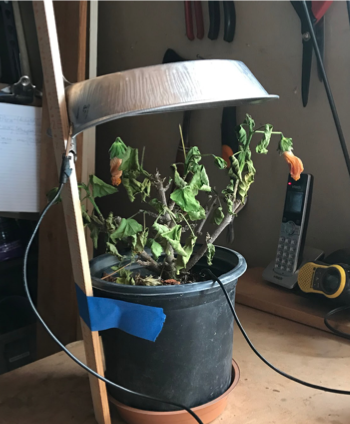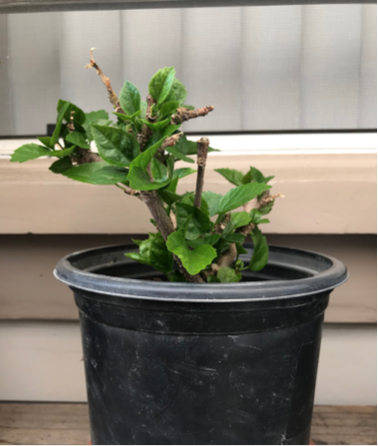The following is an outline of multiple experiments, dealing with high frequency electrostatic stimulation and its effects on organic growth. It has been found that such stimulation when given to perishing and or germinating plants, will significantly improve their overall condition.
Each experiment involves a N.O.S. AC flyback transformer operating on 70 Kilocycles driven by a ZVS solid state driver.
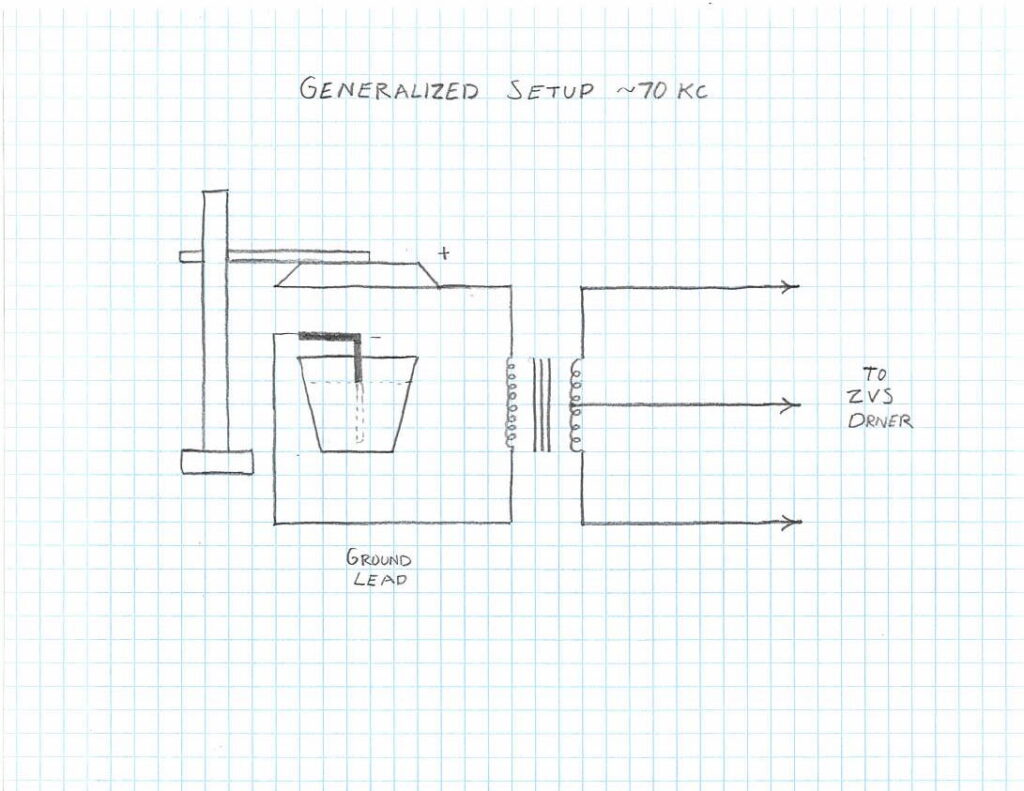
The above diagram describes the use of an ordinary pie-tin, which supplies an “above ground” concentrated electrostatic field to an electrified pot, supplied by a copper rod. The pie-tin supplies a denser artificial atmospheric potential, which is capable of concentrating the electrostatic field between the pot and surface of the tin. A simplistic tin is used for this purpose since it lacks sharp edges, thereby creating a more uniformed field. Both ends are connected to the output terminals of the flyback transformer, delivering roughly 30Kv at one Ampere.
h
Test №.1 – Reviving Dead Plants
A perishing plant had been on the verge of severely drying up, after dealing with one hundred degree weather during the summer season. Water had been occasionally given to the plant prior to treatment, but the weather had become too intense. Treatment was given to the plant for one hour per day, for approximately 10 days. Watering and light spraying was done twice a week. The room in which this took place, did not have a plentiful amount of sunlight for the plant, nevertheless the plant flourished in the end.
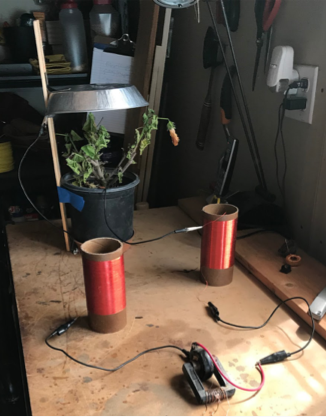
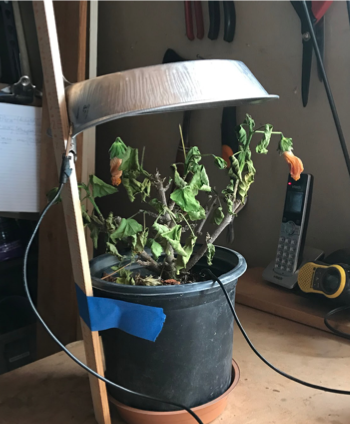
After 10 days of regularly scheduled treatment, the plant’s dead leaves were removed, as substantial amounts of new growth began to appear on its branches.
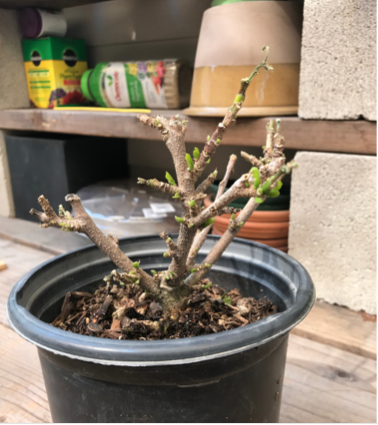
Treatment was stopped after approximately 10 days, as the plant was then able to sustain its own development.
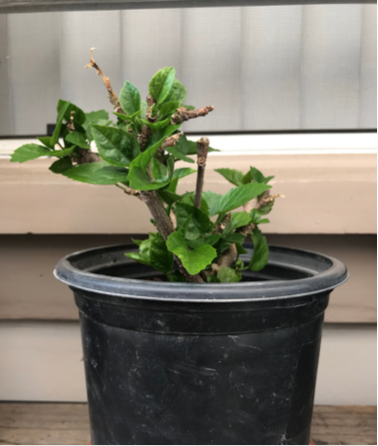
Prior and post electrostatic treatment – 19 day difference.
